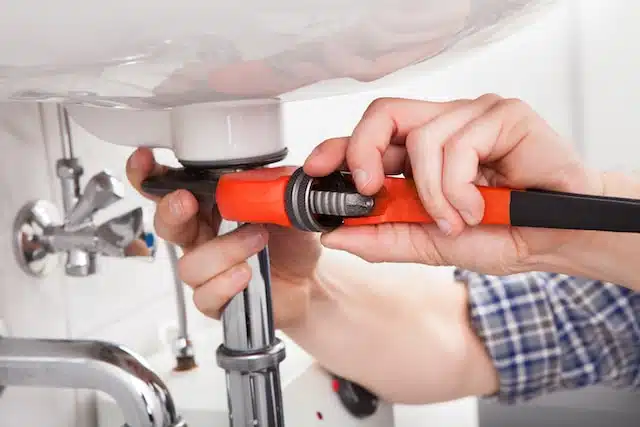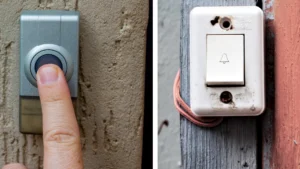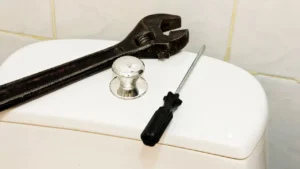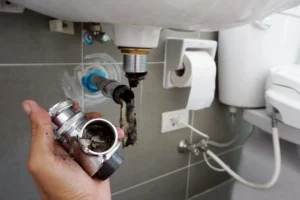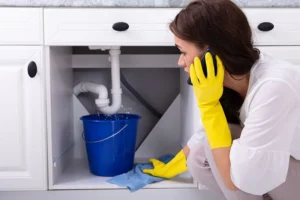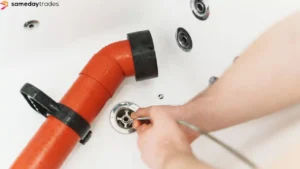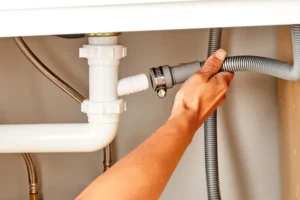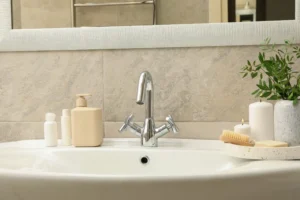Calculating your plumbing costs can be tricky. One key fact is that these expenses depend on several factors, such as the plumber’s hourly rate and job complexity. Our article will guide you through understanding plumbing service rates to piping costs.
Get ready to tackle those numbers!
Factors Affecting Plumbing Costs
Several elements influence plumbing costs. Labour rates, the difficulty of the job, and material choices play significant roles in determining your overall expenses.
Labour Costs
Labour costs play a significant role in your plumbing expenses. Plumbers typically charge based on their hourly rates and the job’s complexity. For instance, a simple repair might cost less than installing new pipes in a building.
Skilled plumbers bring experience and knowledge that can save time, affecting overall pricing.
Emergency services often come at higher rates due to immediate needs during off-hours. According to the Australian plumbing cost guide, routine maintenance usually costs less compared to urgent repairs.
Keep this in mind when considering total plumbing installation costs or maintenance fees for your home.
Investing in skilled labour saves money long-term.
Complexity of Piping Problem
Plumbing problems can vary greatly in complexity. Some issues are straightforward, while others require more time and expertise. Complex piping problems often lead to higher plumbing costs.
The difficulty of a job affects plumber rates significantly.
For example, if the piping runs through walls or ceilings, it complicates repairs. This requires extra effort and skill from plumbers. Estimates for such jobs may include hourly labour costs alongside material expenses.
Plumbers also need to consider the potential for added labour time when assessing plumbing job estimates. Understanding these factors helps you evaluate your overall plumbing cost calculation accurately.
Materials Used
The choice of materials directly affects plumbing costs. High-quality materials often lead to higher expenses but ensure better durability and performance. Common plumbing materials include copper, PVC, and PEX.
Each material has its own cost implications. For instance, copper pipes usually carry a premium price due to their reliability and longevity.
Estimating material costs for plumbing jobs requires attention to detail. Prices can fluctuate based on market demand and local suppliers. Using an accurate formula for cost estimation helps you budget effectively for your project.
While some might opt for cheaper alternatives, the investment in quality can save money on future repairs or replacements.
Quality of Service
Materials play a role in plumbing costs, but quality of service significantly impacts the final price. A skilled plumber provides reliable workmanship and ensures that problems are fixed correctly.
Hiring an experienced professional boosts your chances of long-lasting results.
Plumbing jobs vary in complexity, affecting how much you pay for services. Highly-rated plumbers often charge higher fees due to their expertise and reputation for quality work. Investing in good service can save you money on future repairs and maintenance costs.
Seasonal Demand
Seasonal demand greatly impacts plumbing costs. During peak seasons, such as summer and winter, many homeowners seek plumbing services to handle issues like blocked drains or heating repairs.
This increased demand can also lead to higher plumbing charges due to limited availability of skilled plumbers.
Plumbers adjust their rates based on the time of year. In busy seasons, they may raise prices to reflect the high volume of work. This trend highlights why understanding seasonal variations is essential for estimating plumbing job pricing accurately.
For new home plumbing installation costs, be aware that timing can affect overall expenses significantly.
Local Regulations/Building Codes
Local regulations and building codes significantly affect plumbing costs. These rules dictate how plumbers must carry out their work. They ensure safety and compliance in plumbing practices.
Failing to follow these guidelines can result in fines or the need for costly repairs later on.
Building codes vary by region, impacting pricing differently across locations. Each area may have specific requirements for permits as well. Hiring a professional plumber helps navigate these regulations effectively.
Their expertise ensures that your plumbing job meets all local standards while controlling plumbing maintenance fees and service quality.
Geographic Location and Accessibility
Geographic location and accessibility significantly impact plumbing costs. Plumbers often adjust their charges based on how easily they can reach a job site. If a home sits in a remote area, travel time increases, raising plumbing labor costs.
Local regulations also play a role in pricing. Different regions have unique building codes that plumbers must follow, affecting overall expenses. Understanding these aspects helps homeowners get accurate plumbing job estimates and avoid surprises in construction plumbing expenses.
How to Price Plumbing Jobs
To price plumbing jobs, first determine the hourly rate for labour. Next, estimate the cost of materials needed for the job. Then, factor in overhead costs to get a complete picture.
Finally, add a markup to ensure profitability. For more insights on effective pricing strategies, continue reading!
Determine hourly labor cost
Plumbers set their hourly labor costs based on factors like experience and local market rates. Typically, these costs vary across regions in Australia. Some plumbers may charge anywhere from $80 to $150 per hour for their services.
Understanding how to calculate plumbing labor charges is essential for accurate cost estimation. Complexity of the job affects the final pricing too.
Evaluating both skill level and time needed allows you to determine overall expenses accurately. It’s wise to discuss rates upfront with your plumber before any work begins. Clear communication helps avoid surprises later on.
Knowing this will lead you into estimating material costs effectively.
Estimate material cost
Estimating material cost plays a crucial role in calculating plumbing costs. First, identify the materials needed for your specific job. Common items include pipes, fittings, fixtures, and seals.
Prices vary widely based on the quality of these materials. Use reliable suppliers to gather accurate pricing information.
Consider special requirements or custom parts that might increase expenses. For example, high-quality fixtures may cost more upfront but can save money in maintenance later on. Include those costs in your total estimates to get an accurate picture of plumbing repair charges and plumbing materials expenses.
Accurate calculations help avoid surprises during a project’s progression.
Calculate overhead cost
Overhead costs play a key role in plumbing cost estimation. These expenses include things like tools, equipment, insurance, and office supplies. Plumbers need to factor these into their pricing strategies to ensure they cover all bases.
To calculate overhead costs, list all necessary expenses for your business operations. Divide the total by the number of hours you expect to bill over a specific period. This method gives you an average overhead cost per hour.
By knowing these figures, plumbers can make informed decisions about plumbing fees and service quality while ensuring fair labour charges for plumbing work.
Add markup
Plumbers must add markup to cover their business expenses and ensure profitability. This markup typically includes costs for tools, insurance, and overhead. Markup helps plumbers manage plumbing service costs effectively.
Estimating plumbing costs requires clear understanding of each job’s details. Use a consistent formula to calculate the total price with an appropriate markup. A well-planned pricing strategy boosts earnings while ensuring competitive rates for customers.
Additional Considerations for Plumbing Estimates
When estimating plumbing costs, consider the specific job type and any potential added labour time. Always factor in possible plumbing permit fees that could affect your overall budget.
Type of plumbing job
The type of plumbing job significantly affects costs. Simple repairs, like fixing a leaky tap, usually cost less than complex jobs, such as re-piping an entire house. Each job has unique challenges that influence the overall price.
For instance, emergency services often incur higher fees due to immediate demand and lengthier hours.
Plumbing estimates vary based on the project scope. Routine maintenance generally involves lower expenses compared to urgent fixes or new installations. A professional plumber can accurately evaluate plumbing costs for various tasks, including both routine checks and larger renovation projects.
Understanding these differences helps individuals prepare for plumbing labour costs and material expenses more effectively.
Added labor time
Added labor time significantly affects plumbing costs. Complex plumbing issues often require more time for repairs. This added time increases the total price. Plumbers charge based on their hourly rates, which vary by location and service quality.
In many cases, estimates consider these extra hours before finalising a job’s cost.
Routine maintenance helps manage plumbing repair costs over time. Regular check-ups prevent unexpected problems that require immediate attention and additional labor hours. A solid plan simplifies estimating plumbing costs and reduces future expenses related to emergency services or extensive repairs.
Plumbing permits
Plumbing permits play a crucial role in your plumbing projects. They ensure compliance with local regulations and building codes. Obtaining the right permit can affect overall plumbing costs.
Costs for these permits vary by location and job type, influencing your total expenses.
Professional plumbers often include permit acquisition as part of their service. This expertise helps streamline the process and avoid potential setbacks. Always factor in these costs when estimating your plumbing budget.
Understanding how to calculate your plumbing costs will lead you to make better decisions about your project moving forward.
Tips to Manage Plumbing Costs
5. Tips to Manage Plumbing Costs: Regular maintenance reduces unexpected expenses. Efficiently manage resources for better savings. Build strong relationships with reliable plumbers to receive fair quotes.
Use software to simplify project costing and track budgets. Discover more strategies that can help you save on plumbing services!
Regular preventative maintenance
Regular preventative maintenance plays a vital role in reducing plumbing costs. It helps you catch small issues before they escalate. Routine checks can spot leaks, broken fixtures, or clogs early.
This approach saves money on future repairs and avoids costly emergencies. Plumbing maintenance costs remain lower when you prevent problems.
Hiring professional plumbers for regular inspections ensures quality service. They have the expertise to assess your plumbing system effectively. By maintaining your pipes and fittings properly, you prolong their lifespan and reduce plumbing materials expenses.
A well-maintained system runs efficiently, resulting in lower water bills as well.
Establishing strong relationships with trusted plumbers fosters better communication regarding ongoing needs. You can rely on them for timely advice and efficient resource management too.
Regular upkeep gives peace of mind that your home’s plumbing remains in good condition over time.
Efficient resource management
Efficient resource management plays a key role in plumbing cost evaluation. Efficiently managing time and materials helps reduce overall plumbing costs. For example, knowing the hourly labour costs allows plumbers to schedule jobs better, avoiding delays that can increase expenses.
Choosing quality plumbing materials also impacts long-term savings by reducing frequent repairs.
Plumbers should maintain strong relationships with suppliers for better pricing on materials. This practice leads to lower plumbing materials expenses and increases profits. Streamlining job costing with software aids in tracking resources efficiently, ensuring a smooth workflow throughout each project.
Pricing strategies become easier when plumbers accurately estimate these factors and understand their impact on overall costs. Next, consider the type of plumbing job influencing estimates and pricing strategies.
Building strong relationships with trusted plumbers
Building strong relationships with trusted plumbers can significantly reduce plumbing costs. A reliable plumber understands your specific needs and can provide quality service consistently.
Trustworthy professionals often offer competitive pricing for regular clients. This results in cost savings over time.
Regular communication helps clarify any plumbing problems quickly. A good plumber will keep you informed about potential issues and necessary repairs, avoiding unexpected expenses later.
By fostering these connections, homeowners ensure they receive high-quality service at fair prices. Efficient resource management becomes easier as you rely on someone familiar with your home’s plumbing system.
Streamlining job costing with software
Software can simplify job costing for plumbers. It helps estimate costs quickly and accurately. Plumbers often factor in labour costs, materials, and overhead when creating estimates.
Using software allows them to organise these elements easily.
Many programs offer pricing strategies too. These features help boost earnings on plumbing jobs. They also assist with managing routine maintenance and emergency services more effectively.
Ultimately, streamlining job costing improves overall service quality and customer satisfaction while maintaining accurate cost estimation for plumbing projects.

